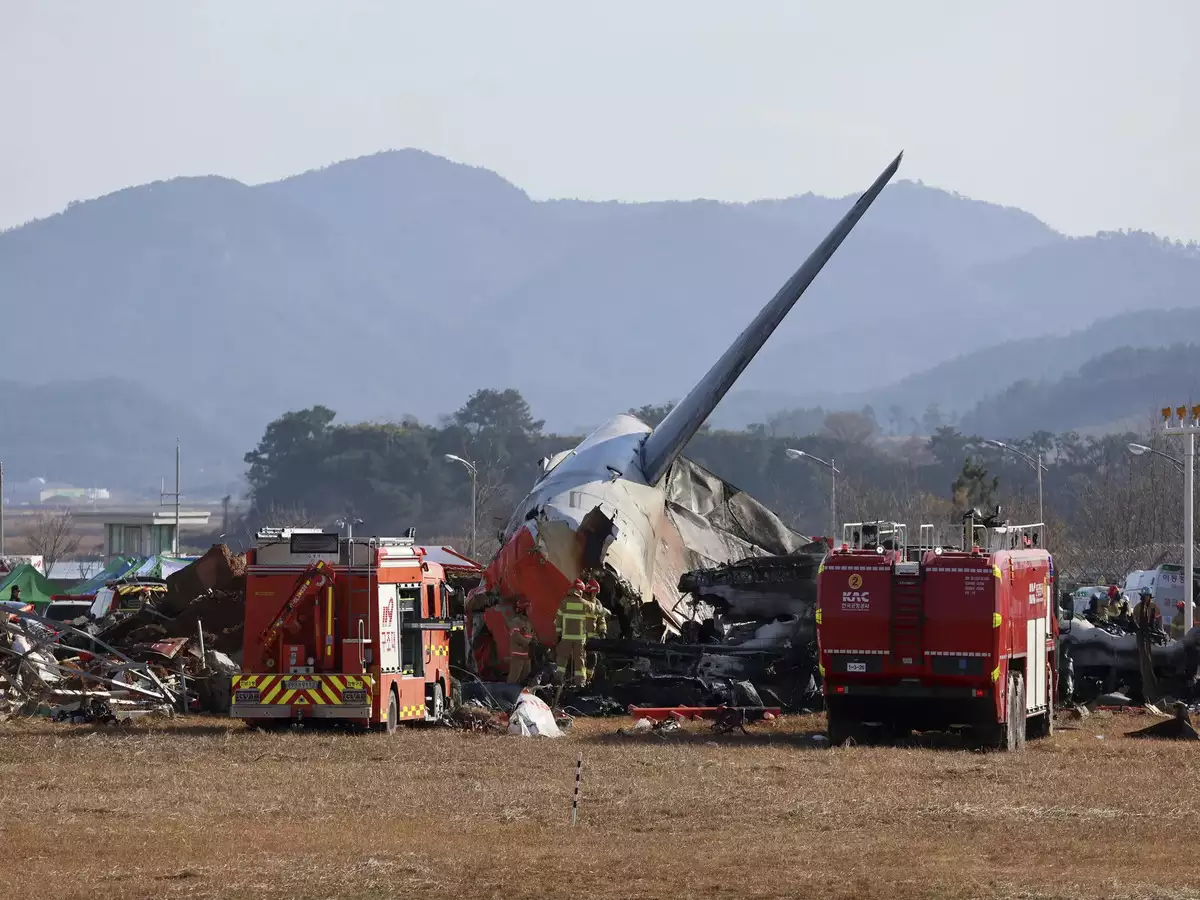
South Korean Plane Crash: Jeju Air’s Safety Grade Under Scrutiny After Tragic Accident
The recent crash of a Jeju Air Boeing 737-800 at Muan International Airport has left South Korea reeling. Despite the airline receiving an “A” safety rating from the government just a year ago, the disaster, which claimed at least 127 lives, has raised serious concerns about the country’s aviation safety standards.
A Catastrophic Incident
On the morning of December 29, 2024, Jeju Air Flight 7C2216, en route from Bangkok to South Korea, crashed upon landing at Muan International Airport. Carrying 181 passengers and crew, the plane skidded off the runway, collided with a barrier, and burst into flames. Rescue teams have confirmed 127 fatalities, with only two survivors located so far. Thick smoke and blazing fire made recovery efforts challenging, and authorities continue to investigate the precise cause of the crash.
Safety Reputation Under Fire
This incident casts a shadow on South Korea’s aviation safety record, once considered among the best in Asia. Jeju Air, a low-cost carrier operating since 2005, had earned an “A” grade from the Ministry of Land, Infrastructure, and Transport in its 2023 safety audit. This assessment evaluates airlines based on accidents, near-misses, and operational reliability. However, past incidents involving Jeju Air suggest systemic issues.
A Troubled History
In 2021, the airline faced an inquiry when one of its planes operated a flight with wing damage that went unnoticed by the crew. This incident led to the airline receiving a lower safety grade of “C” that year. The lapse highlighted critical gaps in maintenance and inspection protocols, which resurfaced in the latest tragedy.
CEO Takes Responsibility
In the wake of the accident, Jeju Air CEO Kim E-bae addressed the public, stating, “Regardless of the cause, I take full responsibility as the CEO.” He extended condolences to the victims’ families and pledged a thorough investigation, assuring that the airline would spare no effort in responding to the disaster. Jeju Air has also issued a public apology across its platforms, expressing regret for the devastating loss of life.
Preliminary Investigations
Initial findings suggest a mechanical failure in the aircraft’s landing gear, which reportedly broke apart upon touchdown. This malfunction caused the plane to veer off the runway, ultimately leading to the collision and subsequent fire. Witness accounts and onboard communications indicate the pilot struggled to regain control. One passenger’s haunting last text message—“Should I say my last words?”—suggests the crew and passengers were aware of the impending catastrophe.
Broader Implications for South Korea
This crash, South Korea’s deadliest aviation disaster in decades, coincides with a period of political upheaval in the nation. The government faces mounting pressure to ensure accountability and implement stricter safety regulations for domestic airlines. Critics argue that while South Korea’s aviation industry boasts impressive safety records on paper, incidents like this reveal vulnerabilities that demand immediate attention.
Survivors and Families Seek Answers
Families of the victims have gathered at the crash site, demanding transparency and answers. Emotional scenes unfolded as grieving relatives expressed frustration over the lack of timely updates. “My older brother died, and I don’t know what’s going on,” one relative lamented at a press briefing.
Moving Forward
In response to the tragedy, the Ministry of Land, Infrastructure, and Transport has announced a comprehensive review of safety protocols for all airlines operating in the country. Jeju Air’s future operations will likely face heightened scrutiny, and the airline’s ability to rebuild public trust remains uncertain.
The crash serves as a grim reminder of the unpredictable nature of air travel and the critical importance of stringent safety measures. While investigations continue, the nation mourns the lives lost and hopes for reforms to prevent such tragedies in the future.